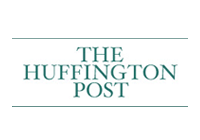
Religion is Divisive and Conservative – and a Very Good Thing
I am a person of liberal convictions, and I spend most of my time with other liberals.
Many of my friends share my liberal political views but recoil from my liberal religious beliefs. The reason that they give most frequently is that “religion is divisive and conservative.”
My answer is always the same: “You are absolutely right.”
Religion, I tell them, is divisive because it deals with important matters — above all, the search for holiness and God and the struggle to determine the ultimate values that guide our lives. As human beings contend with these questions, they will offer multiple answers; this has been so since the time of Babel. Indeed, I am always amused that my liberal friends who are so insistent on pluralism in the political realm are so surprised and put off by pluralism in the religious realm.
Theology, precisely because it deals with weighty and difficult subjects, is a discipline of hard edges.
You are stuck, I go on, in a childish, simplistic mindset that sees religion as a gentle, “let’s all get along” affair. But no one needs religion for that. And any religion that, from time to time, is not intellectually ferocious in asserting its idea of the good — as opposed to someone else’s idea of the good — is not a religion to be taken seriously.
At this point in the argument, my friends look at me with a smirk. You have made my case, they say. Aware of what they are thinking, I acknowledge the underside of religion. Ferocious intellectual arguments about what is moral and what God expects of us can take an extremist turn. They can become an instrument to separate those with our beliefs from the despised “other” who thinks differently. They can become a rationale to hate and even to kill.
But in most instances, I point out, exactly the opposite is true.
And despite our very significant differences and our claims of superiority, it is fascinating that all major religious traditions end up asserting two basic truths. The first is the fundamental dignity of every human being — a dignity that can only come from without and not from within; and the second is our capacity for a deep and sincere compassion that enables us to go beyond ourselves and to feel the pain of others.
True, religious people often begin by feeling this compassion for those in their own narrow community, embracing and comforting only those who attend their church or synagogue or mosque, who share their rituals, and who define morality in their terms. But what we see, from the American experience above all, is that once we have learned to relate to our own community with dignity and compassion, we rather quickly acquire the capacity to relate to others in the same way.
Yes, strong views can be dangerous, but, I insist to my friends, once we accept religion’s divisiveness we can get something back from it. And that something is that religion ultimately leads to healing far more often than it leads to hate. And that is why religious Americans, as Robert Putnam has demonstrated, are, as a general rule, more charitable, more caring, and better citizens than other Americans.
It asserts that when we decide on the matters of greatest consequence, we must give a hearing to the sages of old and to the sacred texts that record their voices. The religious world, it should be said, does not agree on how much attention should be paid to these voices. For fundamentalists, it is their holy writings that matter most; for religious liberals such as myself, ancient teachings must be interpreted in light of reason and modern realities. Yet both camps defer, in some significant measure, to the wisdom of those who came before.
But such deference can only be welcome. Religion rejects the arrogance of those who assume that by virtue of the fact that they are here now, living and breathing at this moment, they possess greater insight into the human condition than revered teachers of old. Religion gives the dead a vote. It says that when we want to repair the spirit and learn about kindness and compassion, the teachings of our ancestors are indispensable.
My conclusion: religion is indeed divisive and conservative — and it is also a very good thing.



 Rabbi Eric Yoffie is a writer, lecturer, and internationally-known religious leader. A bold, compelling, and inspiring speaker, he has presented at the World Economic Forum in Davos and has appeared on Fox news, CNN, and many other news outlets. He writes regularly for Time, The Huffington Post, The Jerusalem Post and the Israeli daily Haaretz. He speaks on a
Rabbi Eric Yoffie is a writer, lecturer, and internationally-known religious leader. A bold, compelling, and inspiring speaker, he has presented at the World Economic Forum in Davos and has appeared on Fox news, CNN, and many other news outlets. He writes regularly for Time, The Huffington Post, The Jerusalem Post and the Israeli daily Haaretz. He speaks on a 
